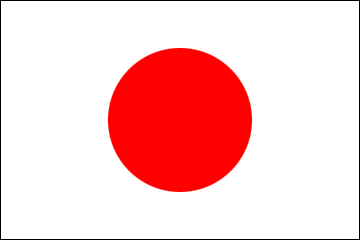The 59th Session of the Human Rights Council Item 2: Enhanced interactive dialogue with the Special Rapporteur on Afghanistan Statement by Ambassador OIKE Atsuyuki (16 June 2025)
2025/6/16
The 59th Session of the Human Rights Council
Item 2: Enhanced interactive dialogue with the Special Rapporteur on Afghanistan
Statement by Ambassador OIKE Atsuyuki
The Permanent Mission of Japan in Geneva
16 June 2025
Item 2: Enhanced interactive dialogue with the Special Rapporteur on Afghanistan
Statement by Ambassador OIKE Atsuyuki
The Permanent Mission of Japan in Geneva
16 June 2025
Thank you, Mr. President, and distinguished speakers, for your powerful briefing.
Japan remains deeply concerned about the human rights situation in Afghanistan, particularly the institutionalized gender oppression faced by women and girls.
The exclusion of women from the justice system and the resulting barriers to legal access have long been alarming.
The Special Rapporteur further highlights that for vulnerable groups—such as ethnic minorities, persons with disabilities, and refugees—access to justice and protection is often completely out of reach.
Japan expresses its deep concern over these multiple and intersecting forms of discrimination and underscores the importance of ensuring justice and protection for all Afghans.
As noted in the report, civil society remains a vital source of hope.
We are seriously concerned that many NGOs face growing restrictions, surveillance, and arbitrary detention.
The international community must stay engaged with the Afghan people.
Denial of education, economic hardship, and social stigma are worsening the situation for women and marginalized groups.
For its part, Japan will continue to provide, support for returnees, internally displaced persons, maternal and child health services, and women’s empowerment.
We will continue to urge the Taliban to reverse its repressive policies and reiterate our continued commitment to peace, stability, and human rights in Afghanistan.
I thank you.
Japan remains deeply concerned about the human rights situation in Afghanistan, particularly the institutionalized gender oppression faced by women and girls.
The exclusion of women from the justice system and the resulting barriers to legal access have long been alarming.
The Special Rapporteur further highlights that for vulnerable groups—such as ethnic minorities, persons with disabilities, and refugees—access to justice and protection is often completely out of reach.
Japan expresses its deep concern over these multiple and intersecting forms of discrimination and underscores the importance of ensuring justice and protection for all Afghans.
As noted in the report, civil society remains a vital source of hope.
We are seriously concerned that many NGOs face growing restrictions, surveillance, and arbitrary detention.
The international community must stay engaged with the Afghan people.
Denial of education, economic hardship, and social stigma are worsening the situation for women and marginalized groups.
For its part, Japan will continue to provide, support for returnees, internally displaced persons, maternal and child health services, and women’s empowerment.
We will continue to urge the Taliban to reverse its repressive policies and reiterate our continued commitment to peace, stability, and human rights in Afghanistan.
I thank you.
